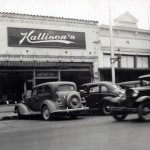Mr. Kotz won a Pulitzer Prize for exposing unsafe conditions in meatpacking plants. He also wrote about hunger in America and the politics of the B-1 bomber.
His articles about conditions in meatpacking plants “helped insure the passage of the Federal Wholesome Meat Act of 1967,” according to the judges who awarded him the Pulitzer Prize.
His articles about conditions in meatpacking plants “helped insure the passage of the Federal Wholesome Meat Act of 1967,” according to the judges who awarded him the Pulitzer Prize.Credit…Jack Kotz
Nick Kotz, a Pulitzer Prize-winning journalist and author who exposed health hazards in the nation’s slaughterhouses, the gamut of hunger in America and the politics behind the Pentagon’s B-1 bomber, died on April 26 in Broad Run, Va. He was 87.
His wife, Mary Lynn Kotz, an author, said he died in an accident on his cattle farm after he had mistakenly left his 2006 Mercedes in neutral as he tried to retrieve a package from the back seat. The car struck him as it rolled backward.
Mr. Kotz was a Washington correspondent for The Des Moines Register and its sister paper The Minneapolis Tribune when he wrote a series of articles in the mid-1960s on the unsanitary and unsafe conditions in meatpacking plants He found that many plants were not subject to federal inspection because they were not engaged in interstate commerce.
The series brought him the Pulitzer Prize for national reporting in 1968. In their citation, the Pulitzer judges said that Mr. Kotz’s articles had “helped insure the passage of the Federal Wholesome Meat Act of 1967,” which extended federal standards to all manufacturers.
His series evoked Upton Sinclair’s 1906 novel “The Jungle,” which dramatized horrific conditions among immigrant workers in Chicago’s stockyards and abattoirs. When President Lyndon B. Johnson signed the legislation in 1967, he was joined at the White House by Mr. Kotz and Mr. Sinclair, who was 89 at the time. (He died the following year.)
When the Pulitzer Prize was announced, the consumer advocate Ralph Nader, who had collaborated in publicizing Mr. Kotz’s findings, said Mr. Kotz’s articles were “a classic performance of objectivity, timeliness, stamina and thorough coverage” that demonstrated “how investigative journalism can break through the elaborate obstructions to information flow on the part of both government and industry.”
Mr. Kotz was a national investigative reporter for The Washington Post from 1970 to 1973 covering civil rights and organized labor. He later contributed to The New York Times Magazine and other publications.
His books include “Let Them Eat Promises: The Politics of Hunger in America” (1971); “A Passion for Equality: George A. Wiley and the Movement” (1977), which he wrote with his wife; “Wild Blue Yonder: Money, Politics, and the B-1 Bomber” (1988); and “Judgment Days: Lyndon Baines Johnson, Martin Luther King Jr., and the Laws that Changed America” (2006).
Reviewing “Let Them Eat Promises” in The New York Times, the critic John Leonard wrote that Mr. Kotz “paints an appalling picture of political persiflage, bureaucratic ineptitude and moral obtuseness.”
In addition to the Pulitzer, Mr. Kotz won the Robert F. Kennedy Award for Excellence in Journalism, the National Magazine Award for public service and the Sigma Delta Chi Award for Washington correspondence. At his death he was completing a memoir about his writing career.
Nick Kotz was born Nathan Kallison Lasser on Sept. 16, 1932, in San Antonio to Benjamin and Tibe (Kallison) Lasser. His father handled advertising for the family farm supply business. After his parents divorced when he was an infant, he was brought up by his mother and maternal grandparents. His mother later headed a real estate company.
In 1945, she married Dr. Jacob Kotz, and the family lived in Washington, where Nick, as he was known, graduated from the private St. Albans School.
After graduating from Dartmouth in 1955 with a degree in history and international relations, he was awarded a James B. Reynolds Scholarship to the London School of Economics. When a friend recommended that he take a class in contemporary American literature there, he decided to become a writer.
Mr. Kotz served as a lieutenant in the Marines in Japan before he was hired as a reporter by The Des Moines Register in 1958. He had chosen The Register from a list of midsize newspapers recommended by his mentor, D.B. Hardeman, an assistant to Sam Rayburn, the Texas Democrat who was speaker of the House.
While working in Des Moines, he encountered a fellow journalist, Mary Lynn Booth, at a party as she was preparing to leave for a magazine job in New York. After they met, she decided to remain in Des Moines. They married in 1960.
In addition to his wife, Mr. Kotz is survived by a son, Jack, and a grandson, Nathan.
In his latest book, “The Harness Maker’s Dream: Nathan Kallison and the Rise of South Texas” (2013), Mr. Kotz wrote about his grandfather, a Jewish refugee who fled Ukraine in 1890 and built a ranch and the largest farm supply business in the American Southwest.
“As a veteran journalist and historian, I only now have become fully aware that the most important history of our country is not found in the grand events of wars and presidencies,” Mr. Kotz wrote, “but rather in the everyday lives of our citizens, how they worked hard to support their families; how they coped with hardships, discrimination and human tragedy; and how they contributed to their own communities and nation.”
From:
New York Times Obituary




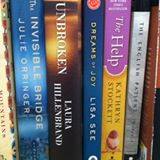
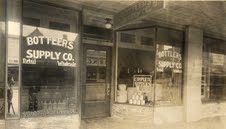
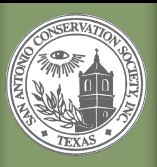
 The Texas Institute of Letters has announced that The Harness Maker's Dream is a finalist for their Carr P. Collins Award for Nonfiction.
The Texas Institute of Letters has announced that The Harness Maker's Dream is a finalist for their Carr P. Collins Award for Nonfiction. 







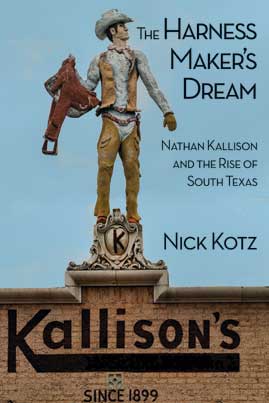

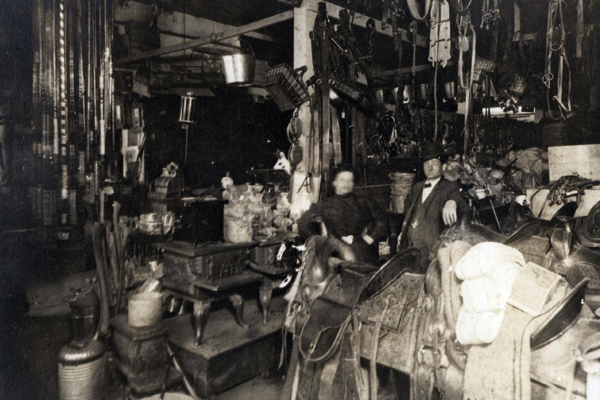











 ered the loss of a child, who had servants or took in boarders, even who owned a radio in the early 20th century.
At Newspaperarchives.com, I found a story on published poll tax lists noting that Nathan Kallison was among those who paid for the “right” to vote in Texas in 1911. Spanning decades, I found hundreds of ads for the Kallison’s downtown store and their Bexar County ranch showing the growth of the family’s dual enterprise. Even the local society pages yielded important minutiae from the everyday lives of Nathan and Anna Kallison and their four children: Parties attended; piano recital pieces; debating team topics; roles in school plays; membership in religious, charitable, and community organizations. Together, they gave me a unique picture of who the Kallisons were and what they valued.
For anyone interested in delving into their own family’s past, agencies at all levels of government are digitizing records. It surprised me to discover that in 1927, during Prohibition, the U.S. government indicted my grandfather and Uncle Morris Kallison for violating laws against the production, sale, and transport of alcoholic beverages. I read the court transcript and looked at the photographic evidence against them using digitized National Archives records. I also easily accessed Bexar County, Texas’s amazing collection of online files. Among the land records, licenses, and agreements, I found the 1902 contract for the first parcel of land purchased by my grandparents–who as Jews were denied that right in the Russia of their youth. My grandfather signed his name in Hebrew script; my grandmother, with an “x.”
I now realize that the most important history of our country is not found in the grand events of wars and presidencies, but rather in the everyday lives of our citizens: how they worked hard to support their families; how they coped with hardships, discrimination, and human tragedy; and how they contributed to their own communities and nation. There has never been a better time to research your own family’s past. That is the story only you can tell.
Nick Kotz’s book The Harness Maker's Dream: Nathan Kallison and the Rise of South Texas was published recently. Kotz has received the Pulitzer Prize for National Reporting, the National Magazine Award, and the Robert F. Kennedy Memorial Award, among others.
ered the loss of a child, who had servants or took in boarders, even who owned a radio in the early 20th century.
At Newspaperarchives.com, I found a story on published poll tax lists noting that Nathan Kallison was among those who paid for the “right” to vote in Texas in 1911. Spanning decades, I found hundreds of ads for the Kallison’s downtown store and their Bexar County ranch showing the growth of the family’s dual enterprise. Even the local society pages yielded important minutiae from the everyday lives of Nathan and Anna Kallison and their four children: Parties attended; piano recital pieces; debating team topics; roles in school plays; membership in religious, charitable, and community organizations. Together, they gave me a unique picture of who the Kallisons were and what they valued.
For anyone interested in delving into their own family’s past, agencies at all levels of government are digitizing records. It surprised me to discover that in 1927, during Prohibition, the U.S. government indicted my grandfather and Uncle Morris Kallison for violating laws against the production, sale, and transport of alcoholic beverages. I read the court transcript and looked at the photographic evidence against them using digitized National Archives records. I also easily accessed Bexar County, Texas’s amazing collection of online files. Among the land records, licenses, and agreements, I found the 1902 contract for the first parcel of land purchased by my grandparents–who as Jews were denied that right in the Russia of their youth. My grandfather signed his name in Hebrew script; my grandmother, with an “x.”
I now realize that the most important history of our country is not found in the grand events of wars and presidencies, but rather in the everyday lives of our citizens: how they worked hard to support their families; how they coped with hardships, discrimination, and human tragedy; and how they contributed to their own communities and nation. There has never been a better time to research your own family’s past. That is the story only you can tell.
Nick Kotz’s book The Harness Maker's Dream: Nathan Kallison and the Rise of South Texas was published recently. Kotz has received the Pulitzer Prize for National Reporting, the National Magazine Award, and the Robert F. Kennedy Memorial Award, among others. 